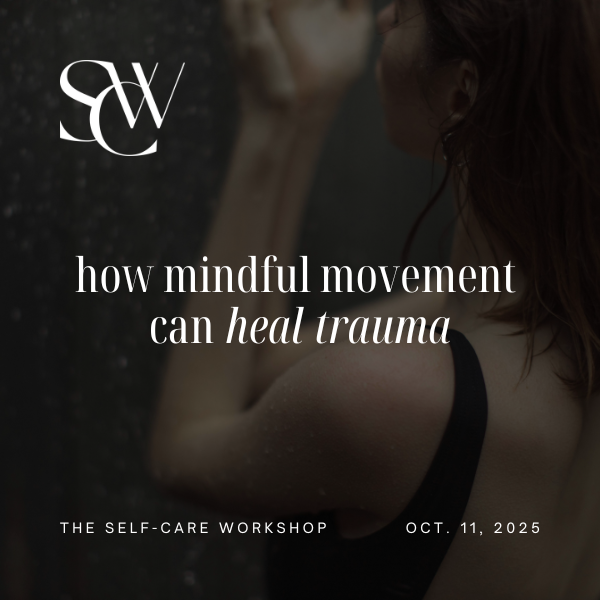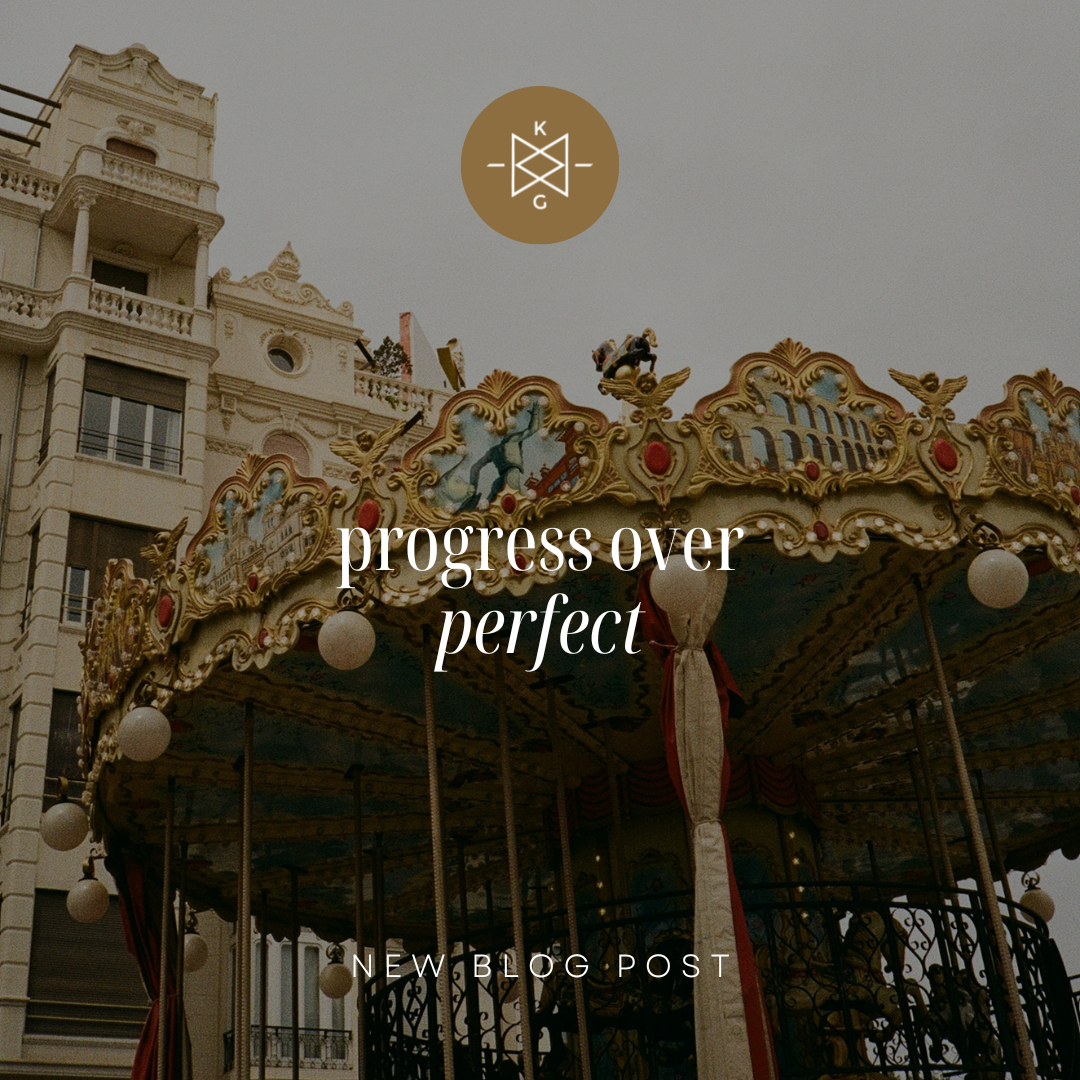
The Blog
Recently Featured
All Blogs
Tiny Changes, Big Results
“True life is lived when tiny changes occur.”
- Leo Tolstoy
You’ve heard the saying, “Rome wasn’t built in a day.”
So why have these crazy unrealistic expectations of ourselves?
I have thoughts on this.
For most people, extremes are easier than balance. Unless we’ve arrived in the vibrant land of Growth Mindset, we tend to get stuck in the purgatory of all or nothing.
Black and white, dualistic belief systems keep us stuck in the rigidity of a fixed mindset.
Here’s an example most of us can relate to. You’ve indulged in way too much of Jeni’s Salted Caramel ice cream. I mean holy dairy that stuff is like crack. You’re feeling the sugar coma set in along with a delayed wave of shame and a stomach ache.
So you beat yourself up and swear you won’t touch it again for the foreseeable future. In fact, you’ve been flirting with the idea of going Keto so this is your shining opportunity.
Sound familiar? Or am I the only one who loses all self-control in the face of temptation?
That type of all-or-nothing behavior is baked into our DNA as humans. Opening up to a growth, or responsive mindset rather than a reactionary one typically must be learned.
And yet when do we actually learn this mature approach to self-development? It’s something that has been a powerful exploration in my life as I’m a total perfectionist in recovery.
A growth mindset is all about both/and.
A fixed mindset is all about either/or.
A growth mindset says, "I ate too much ice cream, I’ll choose something healthy for dinner.”
A fixed mindset says, “I ate too much ice cream. I’m going to go run six miles to burn it off.”
One feels kinder, more spacious…and more balanced. Unless you really just love running 6 miles with a belly ache.
A growth mindset also is built on the firm foundation of consistent, small changes over time. It allows for doable goal setting and implementation rather than extreme makeovers in less than a week. Why? Because that kind of hustle can’t ultimately be sustained. It will likely throw us back into a yo-yo approach to relationship with self and others.
Just like when you board a plane to LA, if the pilot is just two degrees off in navigation, you’ll likely end up in Seattle. Tiny shifts, over time, create big results.
What are some desired outcomes you’d like to see in your life right now? Give yourself plenty of time to get there and break it down into bite-size changes that will help you get there.
As always, I’m here for you if you need a little extra support on the journey.
Practice: Your Ritual for Transformation
“Love and magic have a great deal in common. They enrich the soul, delight the heart, and they both take practice.”
-Nora Roberts
I remember watching the Grammy’s on TV one year. Gosh, it must have been over a decade ago. I’d always had this magical view of artists who’d “made it” and somehow found themselves on stage at the Staples Center performing at music’s biggest night. That year, for whatever reason, this delusional veil lifted as I realized these superstars weren’t born overnight—they worked their asses off to get there.
I think it was an interview I read with John Mayer, who won Best Pop Vocal Album for Continuum that year. He described basically locking himself up with his guitar for an entire year in order to master the instrument and craft that gave him entry into such grand rooms throughout his impressive career.
His charge to aspiring musicians was simple: practice and then practice some more. Become so good they can’t ignore you.
With these trying times, responsibilities seem endless, and taking care of yourself may seem like a thing of the past. But incorporating a ritual of daily practices to calm anxiety and build healthy coping skills is preventative care we can’t afford to ignore.
As a follow up to last week’s blog post, So You Think You Should Talk to Someone? Let's Find the Right Therapist, I want to explore the power of ritual, or practice, as a way to tangibly see the desired outcomes you’ve dreamed of for a while now.
Just like physical fitness, creative mastery, financial success, and other goals you’ve set your sight on, emotionally thriving takes practice. We don’t show up to the gym twice a month and expect to see dramatic results. There are several variables to consider: diet, metabolism, sleep, hydration, mindset, and most of all, consistency.
So why do we expect to show up to therapy a couple times a month and see transformation take place? Not to be a buzz kill, but we simply won’t. If we want results, sure, talking about what’s not working is a good place to start. Yet we must also start practicing a new way of living in order to experience a new way of being.
Again, the operative word here being “practice.”
I like to use the word ritual because it’s prettier and has this spiritual sheen to it. In many spiritual traditions, rituals are used to create order and accentuate the sacred nature of that which is worshiped.
Not to get too woo woo, but we are in fact soulful creatures with unique callings to inhabit while here on the planet. That said, I believe we must treat each day as sacred, intentionally creating structure and reminders around the things that help us thrive.
The first step in personal transformation is simple: wake up! We must consciously show up each day in our lives and challenge the sleepy trance of forgetfulness. After all, we make really bad decisions when we forget the truth of who we are.
I want to support you as you create rituals in your daily experience that will help you unearth your deepest desires. However first, you must know where you’re going.
I’ll leave you with this simple question as a navigation tool: what do you want?
That’s your ticket, my friend. The answer to this question determines where you spend your precious time and energy. It also gives you a prescription for what and how to practice.
So go dream—big and wild. Give your fear a well-deserved day off. You can have her back tomorrow. For now though, sky’s the limit.
Love & Gratitude,
Katie
So You Think You Should Talk to Someone? Let's Find the Right Therapist
“Your familiar memories related to your known world “re-mind” you to reproduce the same experiences.”
-Joe Dispenza
As we all continue to be bombarded with stressors and general unrest, now more than ever, it’s important to assess how we’re coping individually and realize when it’s time to reach out for professional help in order to properly care for ourselves.
Between the COVID-19 pandemic and recent protests, it’s easy to see how stress and anxiety can build to extreme levels. But in order to navigate emotional distress, we can’t simply regurgitate past trauma and dysfunction and ignore the path for a new tomorrow.
I believe one of the greatest tools for working through your past, avoiding burnout, and embracing true transformation is psychotherapy. It is incredibly powerful for anyone seeking a deeper sense of understanding and wholeness.
Good therapists most definitely hold space to unpack the often-brutal stories of our past. Yes, to write a compelling story with you playing the hero instead of the victim, it’s necessary to unearth expired lies and lay them to rest. However, good therapists won’t leave you there.
I’ve been a student of Dr. Joe Dispenza’s work for a while now. He explores this topic neurologically and absolutely nails it. Check this out:
“The stronger the emotion that we feel from some external event in our life, the more altered we feel inside of us as a result of that condition outside of us and the more we pay attention to the cause. The challenge is, every time we think about that trauma, we’re producing the same chemistry in the brain and body as if it was happening again. What that does is it activates a survival gene. And when you’re in survival, what you want to do is make sure that that doesn’t happen again. “
When we lock into this type of survival mode, we often forecast worst-case scenarios. Guess what? Our brain doesn’t know the difference between the imagined state we create and reality. Therefore, we stay trapped in that old victim mentality and it tends to play out over and over again moving forward.
Here’s my point: therapy often doesn’t work because we spend so much time talking about our past to the point we are literally reliving it. Where focus goes, energy flows, therefore creating a habit of attention so strong and involuntary, it becomes nearly impossible to create new life-giving possibilities and successes in our lives. How could we? All our energy is being funneled into past emotions of survival long after the immediate threat is gone.
My approach is different. I’m convinced if we’re interested in creating lasting change, we need an experience to support us as a whole person, not just a cognitive one, from the neck up.
Yes, we need a safe space to tell our stories—100%. Yet we also need an experience of transformation as opposed to a conversation. I believe this happens through daily practices and community.
If you’re ready to dive right in, I’d love to support you in finding tangible breakthroughs. I’m also cooking up some resources that will be available this fall and will support your everyday experience.
Drop me a line. I always love hearing from you.
Love & Gratitude,
Katie
Ritual - The Secret Sauce for Success
“Love and magic have a great deal in common. They enrich the soul, delight the heart, and they both take practice.”
-Nora Roberts
I remember watching the Grammy’s on TV one year. Gosh, it must have been over a decade ago. I’d always had this magical view of artists who’d “made it” and somehow found themselves on stage at the Staples Center performing at music’s biggest night. That year, for whatever reason, this delusional veil lifted as I realized these superstars weren’t born overnight—they worked their asses off to get there.
I think it was an interview I read with John Mayer, who won Best Pop Vocal Album for Continuum that year. He described basically locking himself up with his guitar for an entire year in order to master the instrument and craft that gave him entry into such grand rooms throughout his impressive career.
His charge to aspiring musicians was simple: practice and then practice some more. Become so good they can’t ignore you.
As a follow up to last week’s blog post, Why Therapy hasn’t Worked for You, I want to explore the power of ritual, or practice, as a way to tangibly see the desired outcomes you’ve dreamed of for awhile now.
Just like physical fitness, creative mastery, financial success, and other goals you’ve set your sight on, emotionally thriving takes practice. We don’t show up to the gym twice a month and expect to see dramatic results. There are several variables to consider: diet, metabolism, sleep, hydration, mindset, and most of all, consistency.
So why do we expect to show up to therapy a couple times a month and see transformation take place? Not to be a buzz kill, but we simply won’t. If we want results, sure, talking about what’s not working is a good place to start. Yet we must also start practicing a new way of living in order to experience a new way of being.
Again, the operative word here being “practice.”
I like to use the word ritual because it’s prettier and has this spiritual sheen to it. In many spiritual traditions, rituals are used to create order and accentuate the sacred nature of that which is worshiped.
Not to get too woo woo, but we are in fact soulful creatures with unique callings to inhabit while here on the planet. That said, I believe we must treat each day as sacred, intentionally creating structure and reminders around the things that help us thrive.
The first step in personal transformation is simple: wake up! We must consciously show up each day in our lives and challenge the sleepy trance of forgetfulness. After all, we make really bad decisions when we forget the truth of who we are.
I want to support you as you create rituals in your daily experience that will help you unearth your deepest desires. However first, you must know where you’re going.
I’ll leave you with this simple question as a navigation tool: what do you want?
That’s your ticket, my friend. The answer to this question determines where you spend your precious time and energy. It also gives you a prescription for what and how to practice.
So go dream—big and wild. Give your fear a well-deserved day off. You can have her back tomorrow. For now though, sky’s the limit.
Love & Gratitude,
Katie
Why Therapy Hasn't Worked for You
“Your familiar memories related to your known world “re-mind” you to reproduce the same experiences.”
-Joe Dispenza
I hear it all the time. “Yeah, I spent five years in therapy with not much to show for it but a lot less time and money!”
This fires me up. It also makes me sad for those unwilling to try a different approach.
I believe psychotherapy is incredibly powerful for anyone wanting a deeper sense of wholeness and belonging. Yet oftentimes it serves more as a regurgitation of past trauma and dysfunction instead of a place to gain tools of empowerment for a new tomorrow. That said, we tend to learn the wrong skill set in therapy: how to play the victim.
Good therapists most definitely hold space to unpack the often brutal stories of our past. In order to write a compelling story with you playing the hero instead of the victim, it’s necessary to unearth expired lies and lay them to rest. However, good therapists won’t leave you back there.
I’ve been a student of Dr. Joe Dispenza’s work as of late. He explores this topic neurologically and absolutely nails it. Check this out:
“The stronger the emotion that we feel from some external event in our life, the more altered we feel inside of us as a result of that condition outside of us and the more we pay attention to the cause. The challenge is, every time we think about that trauma, we’re producing the same chemistry in the brain and body as if it was happening again. What that does is it activates a survival gene. And when you’re in survival, what you want to do is make sure that that doesn’t happen again. “
When we lock into this type of survival mode, we often forecast worst-case scenarios. Guess what? Our brain doesn’t know the difference between the imagined state we create and reality. Therefore we stay trapped in that old victim mentality and it tends to play out over and over again moving forward.
Here’s my point: therapy often doesn’t work because we spend so much time talking about our past to the point we are literally reliving it. Where focus goes, energy flows, therefore creating a habit of attention so strong and involuntary, it becomes nearly impossible to create new life-giving possibilities and successes in our lives. How could we? All our energy is being funneled into past emotions of survival long after the immediate threat is gone.
My approach is different. I’m convinced if we’re interested in creating lasting change, we need an experience to support us as a whole person, not just a cognitive one, from the neck up.
Yes, we need a safe space to tell our stories—100%. Yet we also need an experience of transformation as opposed to a conversation. I believe this happens through daily practices and community, or the group process.
If this peaks your interest, amazing. You’re in the right place. I’ll be bringing you a bit more on the specifics of this over the next few weeks.
If you’re ready to dive right in, simply hit reply and drop me a line. I always love hearing from you.
Love & Gratitude,
Katie








































